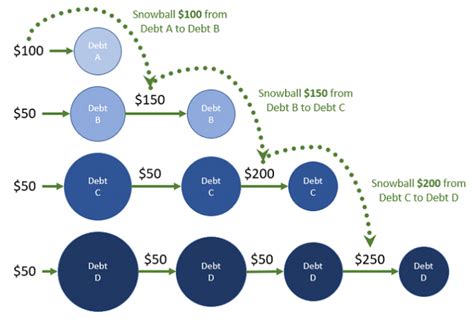
Unfavorable trade conditions for Apple, due to tariffs and geopolitical tensions, could be a major opportunity for Teracube, the only smartphone maker assembling devices in the United States, according to company co-founder Mark Squires.
Teracube, banking on ethical manufacturing and longevity, believes that rising tariffs on foreign-made electronics could level the playing field, making its “Made in USA” phones more competitive against giants like Apple. “We’re already seeing a lot of tailwinds with more and more awareness of supply chain ethics,” Squires told Yahoo Finance. “But the reality is, tariffs on Chinese-made phones would give us a pricing advantage that we currently don’t have.”
The company is positioning itself as a sustainable and secure alternative to mainstream smartphone brands, particularly as concerns about data privacy and geopolitical risks continue to grow. While Teracube faces significant challenges in scaling production and competing on price, the potential for tariffs to reshape the market dynamics presents a compelling opportunity.
Teracube, based in Redmond, Washington, differentiates itself from the competition with its commitment to ethical manufacturing and a focus on device longevity. Its smartphones are designed to be easily repairable and upgradable, and the company offers extended warranties and software support to prolong the lifespan of its devices. This approach, Squires argues, aligns with a growing consumer demand for more sustainable and responsible products.
“We started Teracube to challenge the disposable nature of consumer electronics,” Squires explained. “Our goal is to create phones that last longer, reduce electronic waste, and provide a more transparent and ethical supply chain.” The company sources components from various countries, including some from China, but the final assembly, testing, and quality control are all conducted in the United States. This allows Teracube to label its phones “Made in USA,” which resonates with consumers who are looking to support American manufacturing and jobs.
The tariffs on Chinese-made goods, initially implemented under the Trump administration and maintained under the Biden administration, have already impacted the smartphone industry. While Apple has largely avoided direct tariffs on its iPhones by shifting some production to other countries like India and Vietnam, the potential for further trade restrictions remains a significant concern. If tariffs were to be expanded to include a broader range of smartphone components or if trade tensions between the U.S. and China were to escalate, Apple could face higher costs and potentially be forced to raise prices. This scenario would create an opening for companies like Teracube to gain market share by offering competitively priced, “Made in USA” alternatives.
Squires acknowledges that Teracube still faces significant hurdles in competing with Apple and other major smartphone brands. The company is much smaller, with limited resources for marketing and distribution. It also faces challenges in sourcing components at competitive prices, as many suppliers are geared towards serving larger manufacturers. However, Squires believes that Teracube’s unique value proposition and the potential for tariffs to reshape the market dynamics give it a fighting chance.
“We’re not trying to be the next Apple,” Squires said. “We’re trying to be a different kind of smartphone company, one that prioritizes sustainability, ethics, and American manufacturing. We believe that there’s a growing market for that.” Teracube’s current phone, the Teracube 2e, retails for around $200, making it an affordable option for consumers who are looking for a basic smartphone with a long lifespan. The company is also working on developing new models with more advanced features, which it hopes to launch in the coming years.
The rise of Teracube and other small-scale electronics manufacturers in the U.S. reflects a broader trend towards reshoring and a renewed focus on domestic manufacturing. While it is unlikely that the U.S. will ever return to being a major producer of consumer electronics on the scale of China or South Korea, there is a growing recognition of the importance of having a domestic manufacturing base for strategic reasons, such as national security and supply chain resilience. The COVID-19 pandemic exposed the vulnerabilities of relying on global supply chains, and this has further fueled the push for reshoring.
The potential for tariffs to boost Teracube’s competitiveness is just one factor driving the company’s growth. Another key factor is the increasing consumer awareness of the environmental and social impacts of electronics manufacturing. Consumers are becoming more concerned about issues such as e-waste, conflict minerals, and labor practices in overseas factories. This is creating a demand for more ethical and sustainable electronics products, which Teracube is well-positioned to meet.
Teracube’s commitment to sustainability extends beyond its hardware. The company also offers a software platform that is designed to prolong the lifespan of its devices. This platform includes features such as automatic updates, security patches, and performance optimizations. By keeping its phones up-to-date with the latest software, Teracube aims to ensure that they remain functional and secure for as long as possible.
The company also emphasizes transparency in its supply chain. It discloses the countries of origin for its components and works with suppliers who adhere to ethical labor standards. This level of transparency is rare in the smartphone industry, where many companies are reluctant to reveal details about their supply chains.
Teracube’s success will depend on its ability to scale production, secure funding, and attract customers. The company is currently seeking investors to help it expand its operations and develop new products. It is also working on building partnerships with retailers and carriers to increase its distribution. While the challenges are significant, Teracube’s unique value proposition and the potential for tariffs to reshape the market dynamics make it a company to watch in the coming years. The company hopes to capture a segment of the market of people who want to support American manufacturing and reduce electronic waste while using smartphones that align with their values.
The story of Teracube also reflects a larger debate about the future of manufacturing in the United States. While some argue that it is impossible to compete with low-cost manufacturers in China and other countries, others believe that the U.S. can regain its manufacturing prowess by focusing on innovation, automation, and high-value-added products. Teracube’s success, if it materializes, could serve as a model for other companies that are looking to bring manufacturing back to the U.S.
Furthermore, the company’s focus on creating a circular economy for electronics stands in stark contrast to the industry’s pervasive linear model of “take-make-dispose.” Teracube actively encourages customers to repair their phones, offering readily available replacement parts and detailed repair guides. If a phone is beyond repair, the company provides recycling programs to ensure that valuable materials are recovered and reused. This holistic approach to sustainability addresses the environmental impact of smartphones at every stage of their lifecycle, from manufacturing to end-of-life management.
As geopolitical tensions continue to simmer and supply chain disruptions become more frequent, Teracube’s “Made in USA” approach offers a degree of resilience and control that many larger companies lack. By sourcing components from a diverse range of suppliers and assembling its phones in the United States, Teracube is less vulnerable to disruptions caused by trade wars, natural disasters, or political instability. This resilience is becoming increasingly important in a world where global supply chains are under constant pressure.
The company’s commitment to data privacy is another key differentiator. In an era of increasing concerns about government surveillance and corporate data collection, Teracube offers customers a more secure and privacy-focused smartphone experience. The company uses open-source software and avoids pre-installing bloatware or tracking apps. It also provides users with more control over their data and privacy settings. This commitment to data privacy resonates with a growing number of consumers who are concerned about the security and privacy of their personal information.
Teracube’s story is not just about building a successful smartphone company; it’s about building a more sustainable, ethical, and secure future for consumer electronics. By challenging the status quo and offering a compelling alternative to mainstream brands, Teracube is helping to drive positive change in the industry. Whether the company succeeds in its ambitious goals remains to be seen, but its commitment to its values and its innovative approach to manufacturing make it a force to be reckoned with.
Frequently Asked Questions (FAQs)
1. What is Teracube and what makes it unique?
Teracube is the only smartphone manufacturer that assembles its phones in the United States. The company focuses on ethical manufacturing, sustainability, and device longevity. It designs phones to be easily repairable and offers extended warranties and software support to prolong their lifespan, challenging the disposable nature of consumer electronics. According to Teracube co-founder Mark Squires, the company aims “to challenge the disposable nature of consumer electronics” and create phones “that last longer, reduce electronic waste, and provide a more transparent and ethical supply chain.”
2. How could tariffs on foreign-made phones benefit Teracube?
Tariffs on Chinese-made phones could give Teracube a significant pricing advantage. If major smartphone brands like Apple face higher costs due to tariffs, they may be forced to raise prices. This would create an opening for Teracube to gain market share by offering competitively priced, “Made in USA” alternatives. Mark Squires stated that “tariffs on Chinese-made phones would give us a pricing advantage that we currently don’t have.”
3. What are the key challenges that Teracube faces in competing with larger smartphone companies?
Teracube faces challenges in scaling production, securing funding, and competing on price. The company is much smaller than major brands like Apple, with limited resources for marketing and distribution. It also faces difficulties in sourcing components at competitive prices, as many suppliers are geared towards serving larger manufacturers.
4. What is Teracube’s approach to sustainability?
Teracube’s commitment to sustainability extends beyond its hardware. The company designs phones to be easily repairable and offers extended warranties and software support to prolong their lifespan. It also emphasizes transparency in its supply chain and discloses the countries of origin for its components. Furthermore, Teracube provides recycling programs to ensure that valuable materials are recovered and reused.
5. How does Teracube address data privacy concerns?
Teracube uses open-source software and avoids pre-installing bloatware or tracking apps. It also provides users with more control over their data and privacy settings. This commitment to data privacy resonates with a growing number of consumers who are concerned about the security and privacy of their personal information.
Expanded Analysis and Background Information:
The smartphone industry is dominated by a handful of global giants, primarily Apple and Samsung, with Chinese brands like Xiaomi, Oppo, and Vivo also holding significant market share. These companies have established vast manufacturing ecosystems, primarily in Asia, which allow them to produce devices at scale and at competitive prices. However, this dominance has come at a cost, including environmental concerns related to e-waste and ethical concerns related to labor practices in some factories.
Teracube enters this landscape with a fundamentally different approach. The company’s decision to assemble its phones in the United States is a deliberate choice that reflects its commitment to ethical manufacturing and sustainability. While this decision may initially put Teracube at a cost disadvantage compared to its larger competitors, it also allows the company to control its supply chain more closely and ensure that its products are made in a responsible manner.
The “Made in USA” label carries significant weight for some consumers, who are willing to pay a premium for products that support American jobs and manufacturing. This sentiment has been amplified in recent years by concerns about the decline of manufacturing in the U.S. and the growing trade deficit with countries like China. Teracube is betting that this trend will continue and that more consumers will be willing to choose a “Made in USA” smartphone, even if it costs slightly more.
The potential for tariffs to reshape the market dynamics is a key factor in Teracube’s strategy. The tariffs on Chinese-made goods, which were initially implemented under the Trump administration, have already had a significant impact on the global economy. While Apple has largely avoided direct tariffs on its iPhones by shifting some production to other countries, the potential for further trade restrictions remains a significant concern. If tariffs were to be expanded to include a broader range of smartphone components, or if trade tensions between the U.S. and China were to escalate, Apple could face higher costs and potentially be forced to raise prices.
This scenario would create an opening for companies like Teracube to gain market share. If consumers are faced with a choice between a more expensive iPhone and a competitively priced “Made in USA” Teracube phone, some may choose the latter, particularly if they are motivated by ethical or environmental concerns. However, it is important to note that the impact of tariffs on Teracube’s competitiveness is not guaranteed. If Apple is able to absorb the costs of tariffs or find alternative ways to lower its prices, Teracube may not see a significant boost in sales.
Another key factor driving Teracube’s growth is the increasing consumer awareness of the environmental and social impacts of electronics manufacturing. Consumers are becoming more concerned about issues such as e-waste, conflict minerals, and labor practices in overseas factories. This is creating a demand for more ethical and sustainable electronics products, which Teracube is well-positioned to meet.
The company’s commitment to sustainability extends beyond its hardware. Teracube also offers a software platform that is designed to prolong the lifespan of its devices. This platform includes features such as automatic updates, security patches, and performance optimizations. By keeping its phones up-to-date with the latest software, Teracube aims to ensure that they remain functional and secure for as long as possible.
The company also emphasizes transparency in its supply chain. It discloses the countries of origin for its components and works with suppliers who adhere to ethical labor standards. This level of transparency is rare in the smartphone industry, where many companies are reluctant to reveal details about their supply chains.
Teracube’s success will depend on its ability to scale production, secure funding, and attract customers. The company is currently seeking investors to help it expand its operations and develop new products. It is also working on building partnerships with retailers and carriers to increase its distribution.
One potential challenge for Teracube is convincing consumers that its phones are worth the price. While the company offers a unique value proposition based on ethical manufacturing, sustainability, and device longevity, it may be difficult to compete with the established brands on features and performance. Teracube will need to demonstrate that its phones offer a compelling user experience and that they are reliable and durable.
Another challenge is the lack of a well-established domestic supply chain for smartphone components. While Teracube assembles its phones in the United States, it still relies on suppliers from other countries for many of the components. This can make it difficult to control costs and ensure the quality of the components.
Despite these challenges, Teracube has a significant opportunity to carve out a niche in the smartphone market. The company’s unique value proposition resonates with a growing number of consumers who are looking for more ethical and sustainable products. If Teracube can successfully scale its production, secure funding, and attract customers, it could become a major player in the “Made in USA” electronics movement.
The story of Teracube also reflects a larger debate about the future of manufacturing in the United States. While some argue that it is impossible to compete with low-cost manufacturers in China and other countries, others believe that the U.S. can regain its manufacturing prowess by focusing on innovation, automation, and high-value-added products. Teracube’s success, if it materializes, could serve as a model for other companies that are looking to bring manufacturing back to the U.S. and demonstrates that it is possible to create a sustainable and ethical electronics business in the United States. This is particularly important as global supply chains become increasingly complex and vulnerable to disruption.
The “Made in USA” label can also be a powerful marketing tool. Consumers are often willing to pay a premium for products that are made in the United States, as it signifies quality, craftsmanship, and support for American jobs. Teracube can leverage this sentiment to build brand loyalty and attract customers who are looking for an alternative to the mass-produced smartphones from China and other countries. The company could even partner with other “Made in USA” brands to cross-promote its products and reach a wider audience.
In addition to its focus on sustainability and ethical manufacturing, Teracube also emphasizes data privacy and security. In an era of increasing concerns about government surveillance and corporate data collection, Teracube offers customers a more secure and privacy-focused smartphone experience. The company uses open-source software and avoids pre-installing bloatware or tracking apps. It also provides users with more control over their data and privacy settings. This commitment to data privacy resonates with a growing number of consumers who are concerned about the security and privacy of their personal information. Teracube can differentiate itself by focusing on providing a secure and private smartphone experience, which is becoming increasingly important in today’s digital world. This approach can help the company to attract customers who are concerned about their data privacy and security.
Ultimately, Teracube’s success will depend on its ability to execute its vision and build a sustainable business model. The company faces significant challenges, but it also has a unique opportunity to disrupt the smartphone market and create a more ethical and sustainable future for consumer electronics. By focusing on ethical manufacturing, sustainability, data privacy, and innovation, Teracube can build a brand that resonates with consumers and helps to drive positive change in the industry. The company’s story is an inspiring example of how businesses can be a force for good and create a more sustainable future for all.
Further Considerations:
The long-term viability of Teracube will depend on factors beyond tariffs and consumer sentiment. Technological advancements, material sourcing strategies, and overall economic conditions will also play crucial roles.
- Technological Advancements: Teracube will need to stay abreast of the latest advancements in smartphone technology to remain competitive. This includes investing in research and development and partnering with other companies to develop innovative features.
- Material Sourcing Strategies: Securing a stable and ethical supply chain for components will be critical. This may involve diversifying suppliers, investing in domestic manufacturing capabilities, and working with suppliers who adhere to high environmental and labor standards.
- Economic Conditions: Overall economic conditions will also play a role in Teracube’s success. A strong economy will make it easier for consumers to afford Teracube’s phones, while a recession could make it more difficult.
Teracube’s Competitive Advantages:
Beyond tariffs and ethical considerations, Teracube possesses several potential competitive advantages:
- Agility and Innovation: As a smaller company, Teracube may be more agile and innovative than larger competitors. It can respond more quickly to changing market conditions and develop new products and services that meet the needs of consumers.
- Community Building: Teracube can build a strong community of loyal customers by engaging with them online and offline. This can help the company to build brand loyalty and generate positive word-of-mouth marketing.
- Partnerships: Teracube can partner with other companies to expand its reach and offer new products and services. This could include partnerships with retailers, carriers, and technology providers.
Teracube’s success will require a combination of strategic planning, execution, and adaptability. The company must navigate a complex and competitive landscape while staying true to its values and building a sustainable business model. If Teracube can overcome these challenges, it has the potential to become a major player in the smartphone market and a leader in the “Made in USA” movement.









